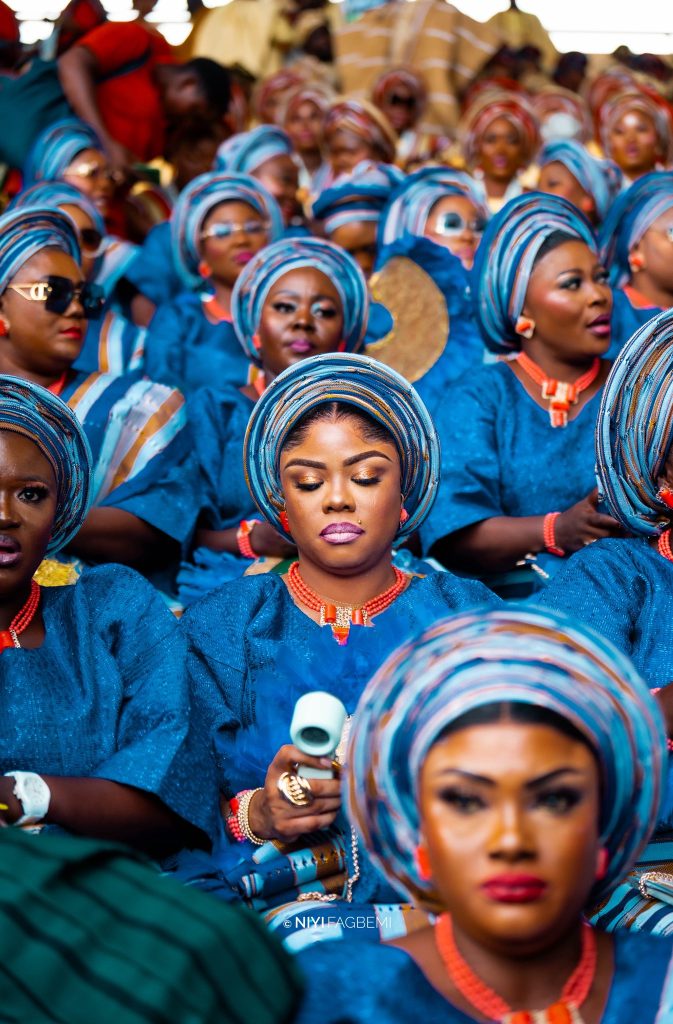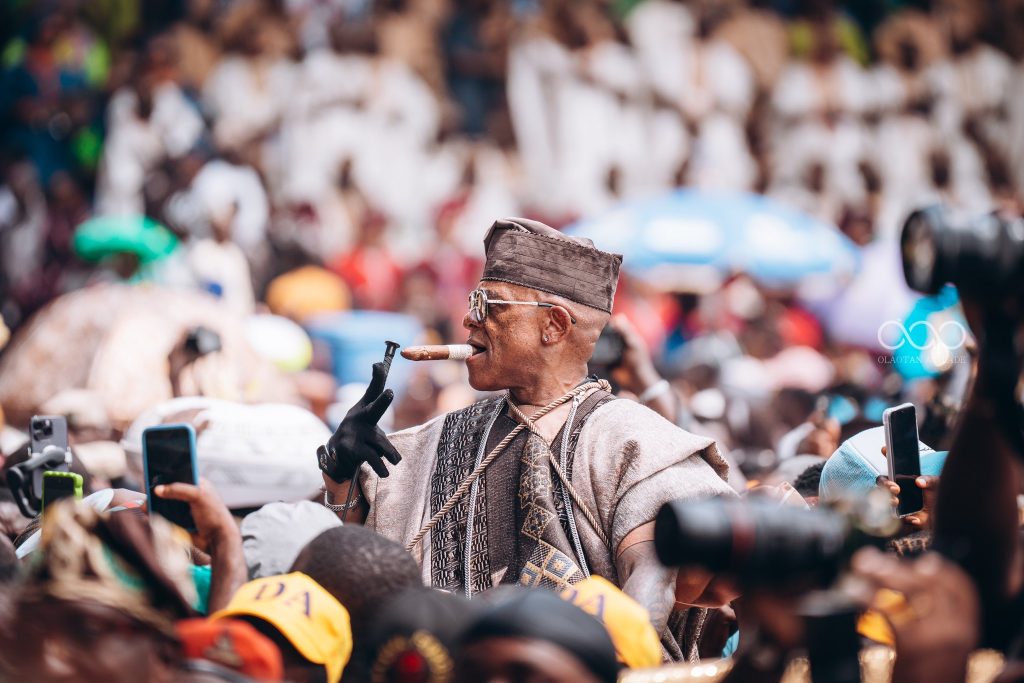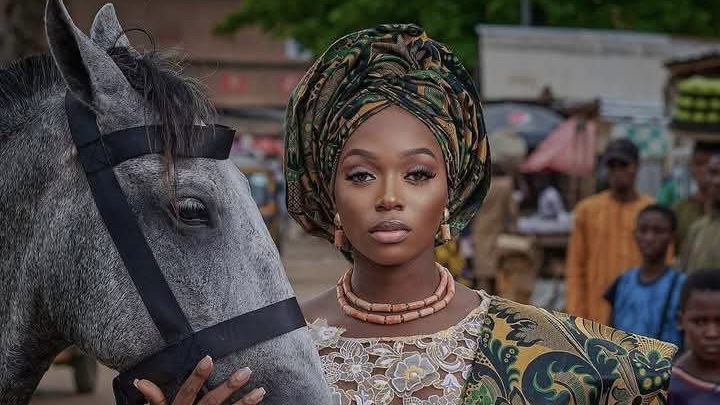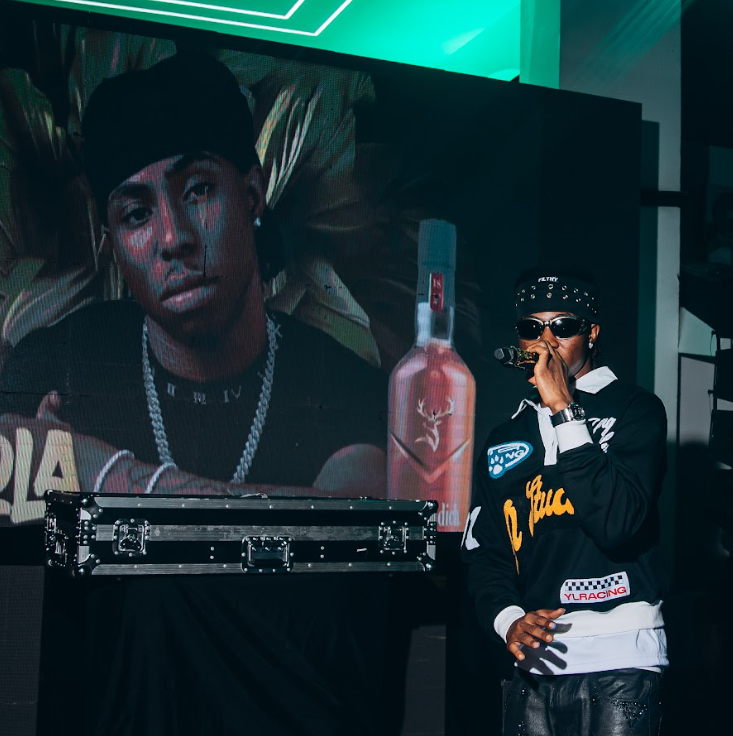You’ve seen pictures from the Ojude Oba festival flooding your timeline, but is it just an aura farming contest? What was it like before it took social media by storm?
“Ojude Oba” translates to “the King’s Courtyard”. It is a spectacular yearly event celebrated in Ijebu-Ode, Ogun State. More than just a tradition, it is a powerful expression of Ijebu pride and Yoruba cultural excellence. The festival arose as a replacement for the Odeda Festival, which honored indigenous deities.
The festival started by accident. In the late 1800s, under the reign of Awujale Ademuyewo Afidipotemole, Islam had started springing up in Ijebu-Ode. In 1896, the influential Chief Balogun Kuku, faced with the Christian doctrine of monogamy, chose Islam instead as the faith aligned with his polygamous lifestyle, and his status and wealth brought more converts. During one particular Odeda Festival, Chief Kuku and a large, lavishly dressed procession comprising his sons, followers, singers and drummers, moved towards the Awujale’s palace on foot and horseback to pay their respects to the ruler. When the traditional worshippers gathered there saw the crowd arriving, they left in confusion (with some accounts claiming they feared war). This marked the end of Odeda and the start of the Ita-Oba festival, Ojude Oba’s early form. It is now held annually on the 3rd day of Eid el-Kabir (or Ileya).

Since then, Ojude Oba has grown into a lavish cultural exhibition. The celebration is marked by regberegbe (age-grade) processions, royal horse-riding shows, and dazzling displays of traditional attire by the various Ijebu-Ode families that capture the vibrancy of Ijebu culture. Drawing in over 250,000 participants annually from across Nigeria and beyond, it has become a cultural magnet and a source of economic and tourism opportunities. The event seamlessly merges tradition with flair, becoming a creative showcase of Yoruba identity and community.
The festival’s prestige attracts a wide range of dignitaries, celebrities, and national figures. All From former Senate President Bukola Saraki to Governor Babajide Sanwo-Olu, political leaders and business moguls frequently attend. Corporate brands like Globacom have lent their support by sponsoring beauty contests and live entertainment during the festival. After its 2020 and 2021 cancellations due to the COVID-19 pandemic, Ojude Oba returned in 2022 to widespread enthusiasm and social media acclaim. In 2024, it drew massive attention after Farooq Oreagba, a cancer survivor, made a bold and elegant horseback appearance, his presence became a viral symbol of strength and elegance. He earned the moniker “King of Steeze” and has been elevated to near-celebrity status.

This new wave of attention has sparked renewed interest in the festival, with people who are not indigenes of Ijebu-Ode scrambling to attend. This year, we even saw deviations from traditional dressing, which only promises to continue in forthcoming years. It begs the questions: should cultural practices be gatekept? Is it an insult or a compliment to traditions when other people want to partake? Do slight changes to traditional practices water down or elevate cultures? Will Ojude Oba live on in modern history based off this renaissance, or are outsiders causing the essence of the festival to be lost?




